6. Dazed and Confused
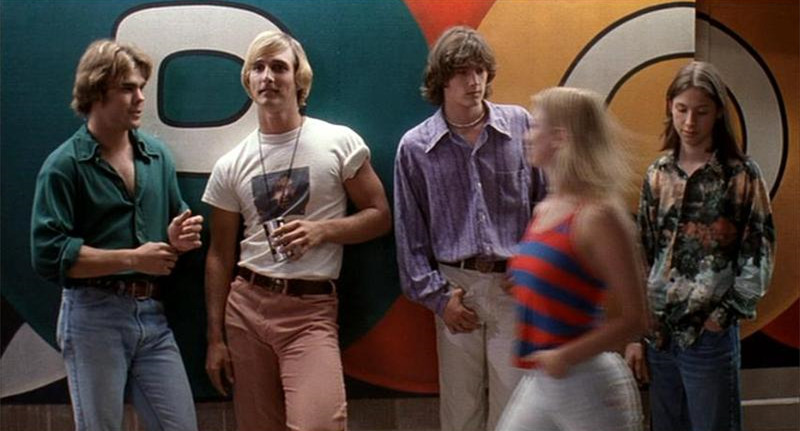
Wearing its nostalgia well, Dazed and Confused is an indispensible cult classic and Linklater’s first great film. Navigating many social circles on the last day and night of the school year, the film covers newly spanked freshman to seniors savoring their first or last breath of freedom, depending on how you look at it.
By working in his own experiences at Huntsville High School, Linklater’s film has the unique ability to make you feel like you’re reuniting with old friends no matter who is onscreen. Jason London and Wiley Wiggins are our more identifiable leads, while Matthew McConaughey, in his legendary acting debut, is an easy highlight from the impeccable and extensive supporting cast.
Linklater’s wit was sharpening, his eye for realism becoming clearer and his screenwriting tactics were just starting to flourish – not many directors could handle this many separate characters without weakening the film as a whole. Taken as a coming-of-age touchstone or simply the comfiest of hangout movies, Dazed and Confused is always what you need it to be.
5. A Scanner Darkly
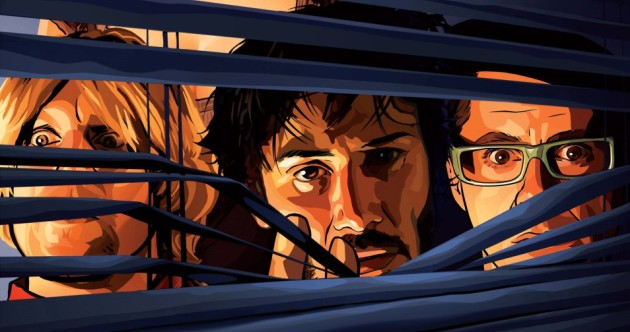
Maybe Linklater’s most underrated film, A Scanner Darkly returns to the rotoscoping of Waking Life to serve a purpose equal to that of a permanent dream state – visualizing one of Philip K Dick’s near-futures through the eyes of an addict. Envisioned as if Substance D is warping your own consciousness, the film follows undercover drug enforcement agent Bob Archter (Keanu Reeves) as he spans both sides of the film’s drug epidemic, from his burnout friends to the anonymity of his office work.
On par with Blade Runner and Minority Report in terms of cinematic realization and honoring the masterly sci-fi writer’s thematic implications, A Scanner Darkly finds Linklater at the height of his skills as a director of performance, an adaptive screenwriter and a humanist filmmaker.
The stoner-logic humor of Robert Downey Jr. and Woody Harrelson’s antics, the neo-noir aspects of Winona Ryder’s femme fatale and the somber lamentation of Dick’s ending are all pieces of a great film that become more appreciable with multiple viewings.
A world of extreme surveillance, police state, and drug culture exploited by our own government is not unlike Dick’s other visions – particular to A Scanner Darkly are poignant themes of identity, paranoia and the cycle of addiction. Despite the tragedy of its scope, Linklater’s film is supremely entertaining, full of intellectual fat to chew and visual wonders to relish.
4. Boyhood
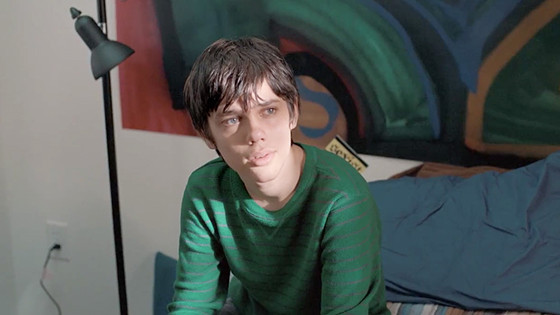
The critical darling of 2014 was not without its naysayers – several detractors from the universal praise called Boyhood’s 12-year shoot a gimmick unsupported by a boring narrative. But with Birdman’s win at the Oscars the following year, Boyhood’s been left to age rather gracefully. Boyhood serves as a marvelous experimental film, a seismic assessment of the classic coming-of-age story and a living, breathing time capsule of 21st century culture from the millennial perspective.
Of course there is not much internal conflict, no overarching plots and payoffs – anyone wondering, “What’s the point?” by the film’s 2 ½-hour-plus conclusion were never going to find it. Linklater’s movies have always been drawn from premise and dialogue than simple dramatic structure, but in Boyhood his inner mumblecore broke forth. Embracing the quotidian factors of modern young life – the banalities of teenage chatter, petty arguments with parents – Boyhood reflected the realism of our own lives regardless of how entertaining it was.
Boyhood is Linklater’s late career masterpiece, and on any viewing it’s thrilling to watch not only the actors in character transform before our eyes, but also to see an assured independent director meld into a seasoned American filmmaker. Echoing and epitomizing so many of his previous sentiments and themes, Boyhood is representative of almost everything Linklater has sought to express throughout his career.
3. Before Sunset
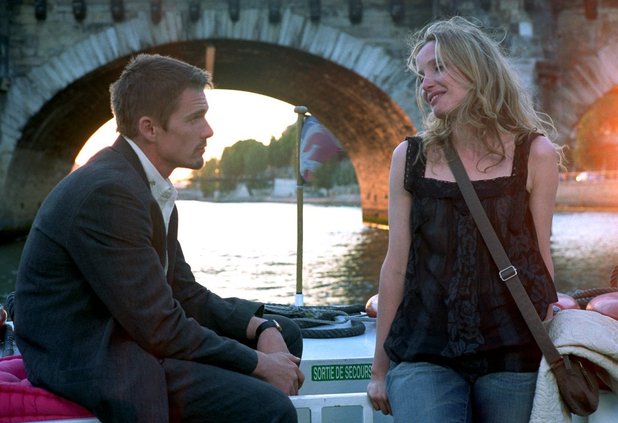
A second chance for his estranged characters and a first chance to cinematically explore time on a large scale, Before Sunset is perhaps Linklater’s most precise and subtextually stimulating film.
Playing out in real time over the film’s swift 80-minute runtime, Before Sunset reunites Ethan Hawke and Julie Delpy’s Jesse and Celine nine years after their parting in Before Sunrise. Jesse has since written a book fictionalizing their night together and on the final stop of his overseas book tour she locates him at a Paris bookshop.
Of course, beneath the politeness of catching up and the energy of rediscovering their conversational repartee are all of flirtation’s indirectness and subtleties. Since he’s married with a kid and she has a boyfriend, Before Sunset almost becomes a thriller in how well it teases the will-they-won’t-they angle.
The film purposely cuts right before things get really interesting, but even with such a cliffhanger Sunset is satisfying just in their exquisite interactions – we can decide for ourselves if recapturing an unrealistic version of happiness is worth risking an individually ideal life.
Before Sunset is about reflection more than about rekindling romance. After all the anticipation and ambiguity, the film exhales with Celine’s performance of her confessional waltz in the film’s gentle climax. Finally the audience can stop second-guessing and so can Jesse. With its authentic depiction of desire and some of Linklater’s best dialogue to date, Before Sunset is one of the director’s finest features.
2. Before Sunrise
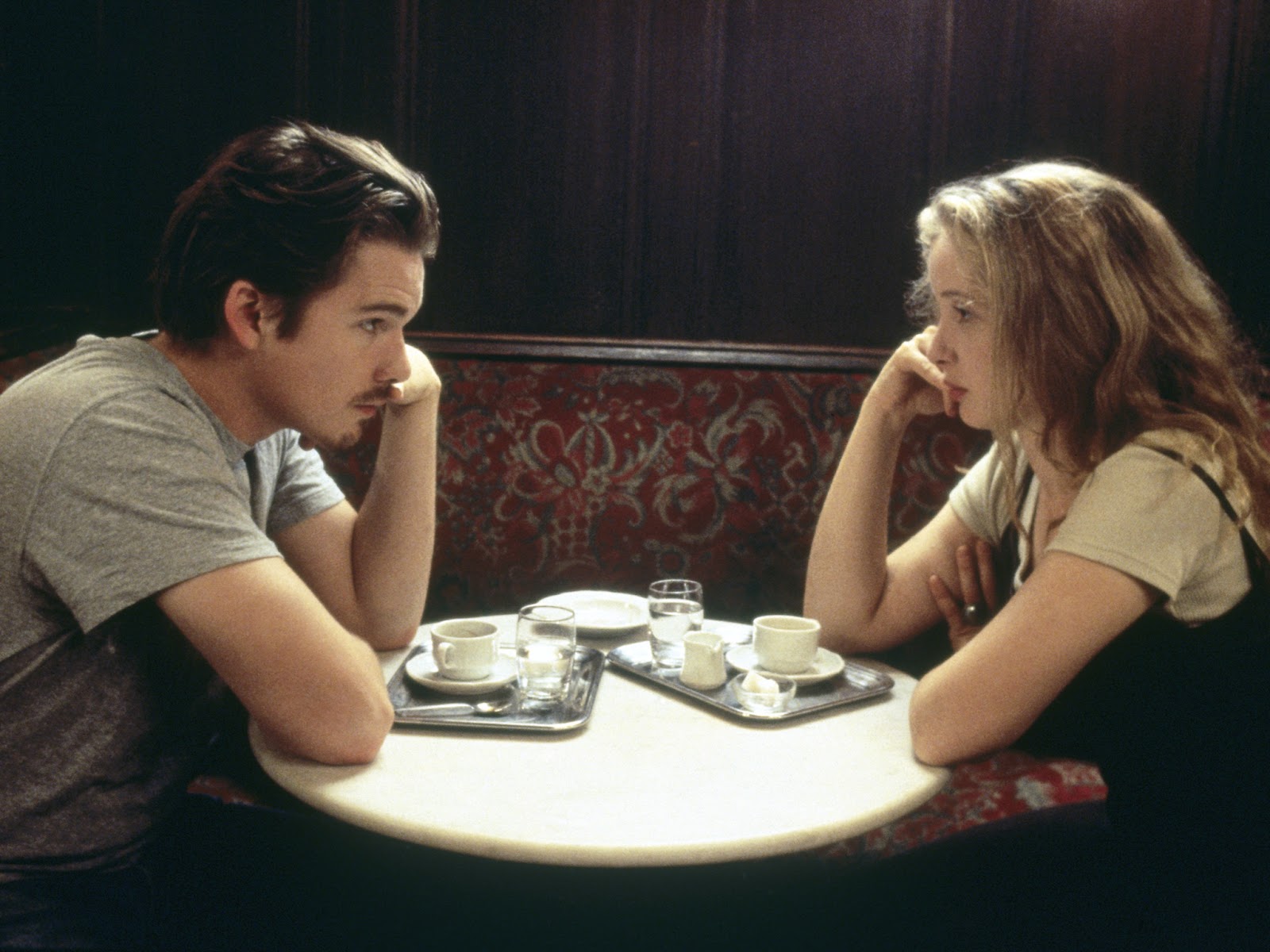
As much as Before Sunset may be the perfect sequel, it’s near impossible to top the fulfillment of new love as it blossoms before you in Before Sunrise.
Two of the best scenes Linklater has ever penned appear back to back in Sunrise. First, Jesse and Celine’s back-alley conversation weighs the value of happiness in relation to family and personal success, and their contrasting perspectives are both priceless.
Afterward in a crowded café, the two coyly pretend to be calling their friends back home in order to reach a state of honest communication with each other. These scenes are ravishing in their beautiful symbiosis of dialogue and performance – they’re so natural you could mistake these moments for real life.
Each successive Before installment has shed the skin of previous naivety and youth for greater pragmatism, but Before Sunrise is not some starry-eyed paperback novel. There’s still a burning cynicism bubbling beneath the veneer of European summer romance, as our jaded adolescents seem shy to admit to each other how deeply they feel by the end of their painfully brief encounter. The feeling of Before Sunrise is bittersweet, like a dream you could have sworn was real, except you can revisit this film’s lovely perfection again and again.
1. Waking Life
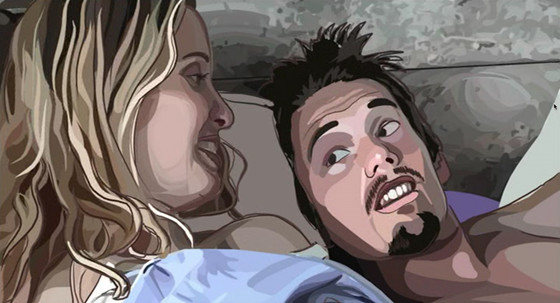
“You know they say dreams are real only as long as they last – couldn’t you say the same thing about life?”
A head-spinning, bracingly original masterpiece, Waking Life is one of the most complex modern screenplays put to film. Get on this film’s wavelength and Linklater’s rotoscoped and feverishly philosophical dream vision will literally transport you both visually and cerebrally over the course of its dense, intricate hour and a half.
It’s animation technique – which took many months with local artists to complete as opposed to the brief few weeks of shooting – was groundbreaking, but beneath the psychedelic sublimity on the surface of Waking Life lies rare thematic and reflective profundity. Seeking no less than to encapsulate all his various feelings on the essence of life and its paradoxical relationship with dreams, Linklater’s multiple masterfully arranged monologues serve as stages in the brain’s final subconscious moments before death is permanent.
Waking Life properly imitates the stilted surrealism of dreaming, but its ideas are clear as day. Linklater’s acrobatic prose bends many of his prescribed perspectives to the life-affirming bent, but the film never preaches or subscribes to one idea absolutely. His wildly ambitious original screenplay is so intent on truth – fueled by necessary poetics and even pretension when needed – that its variant forms of veracity just become more moments and ideas to savor as they pass.
“Things only mean as much as the meaningfulness we allow them to have,” wrote Linklater for Zoey Deutch’s character in Everybody Wants Some!! Experiencing Linklater’s best films firsthand does more justice to them than words can, and Waking Life leaves behind potential meaning for curious audiences that is practically boundless.